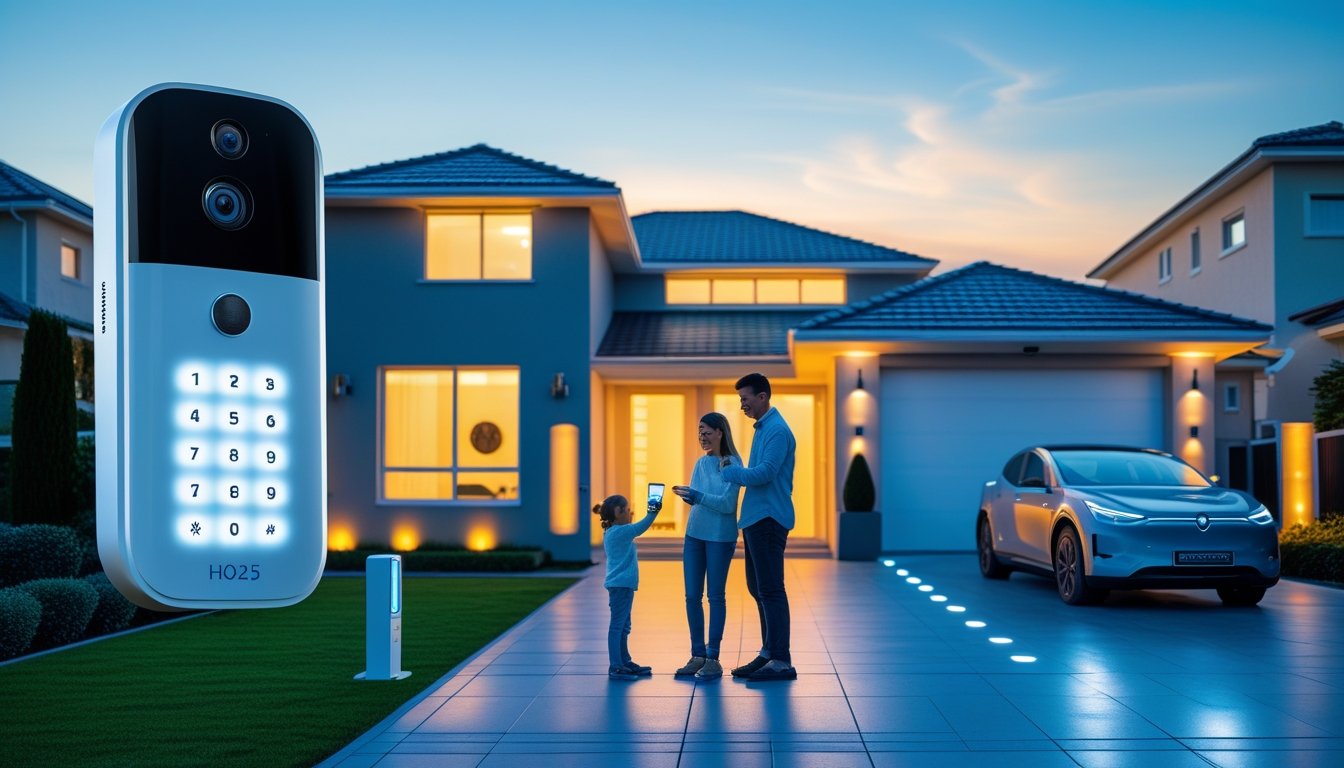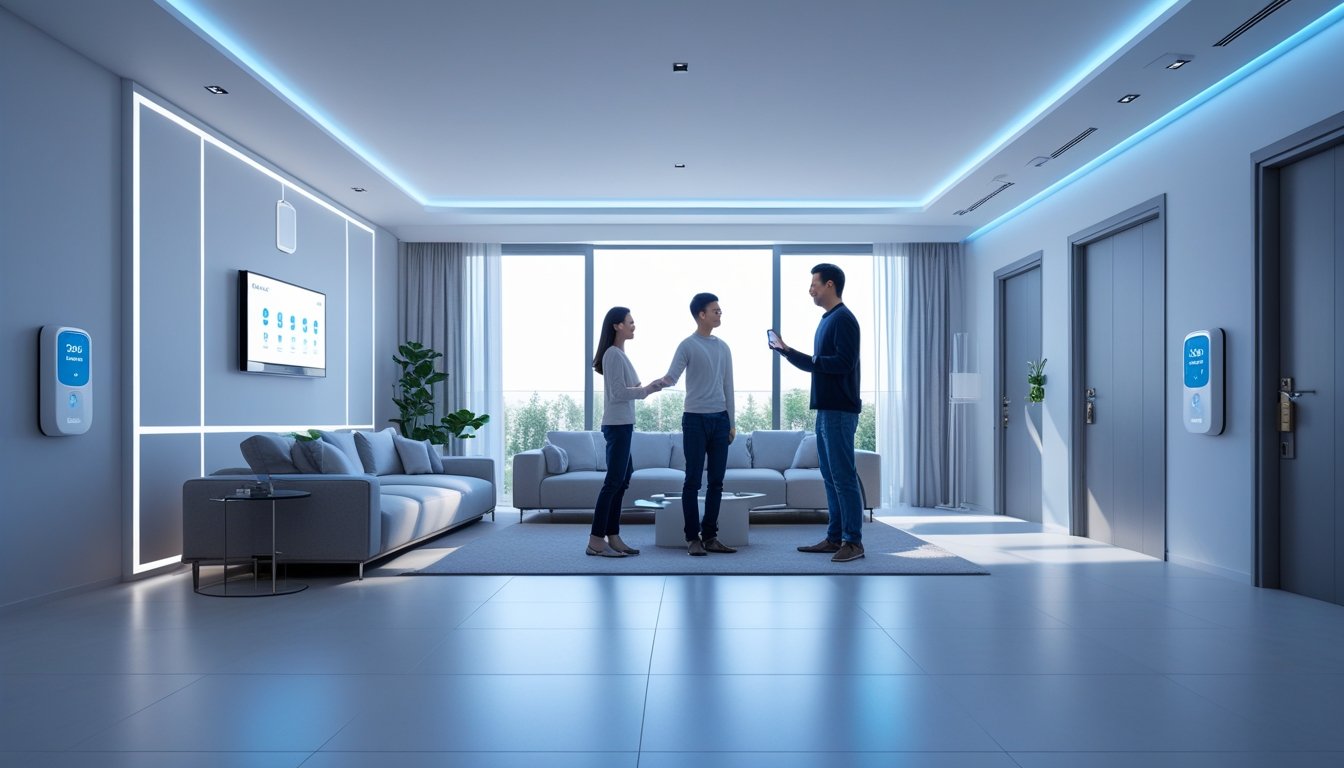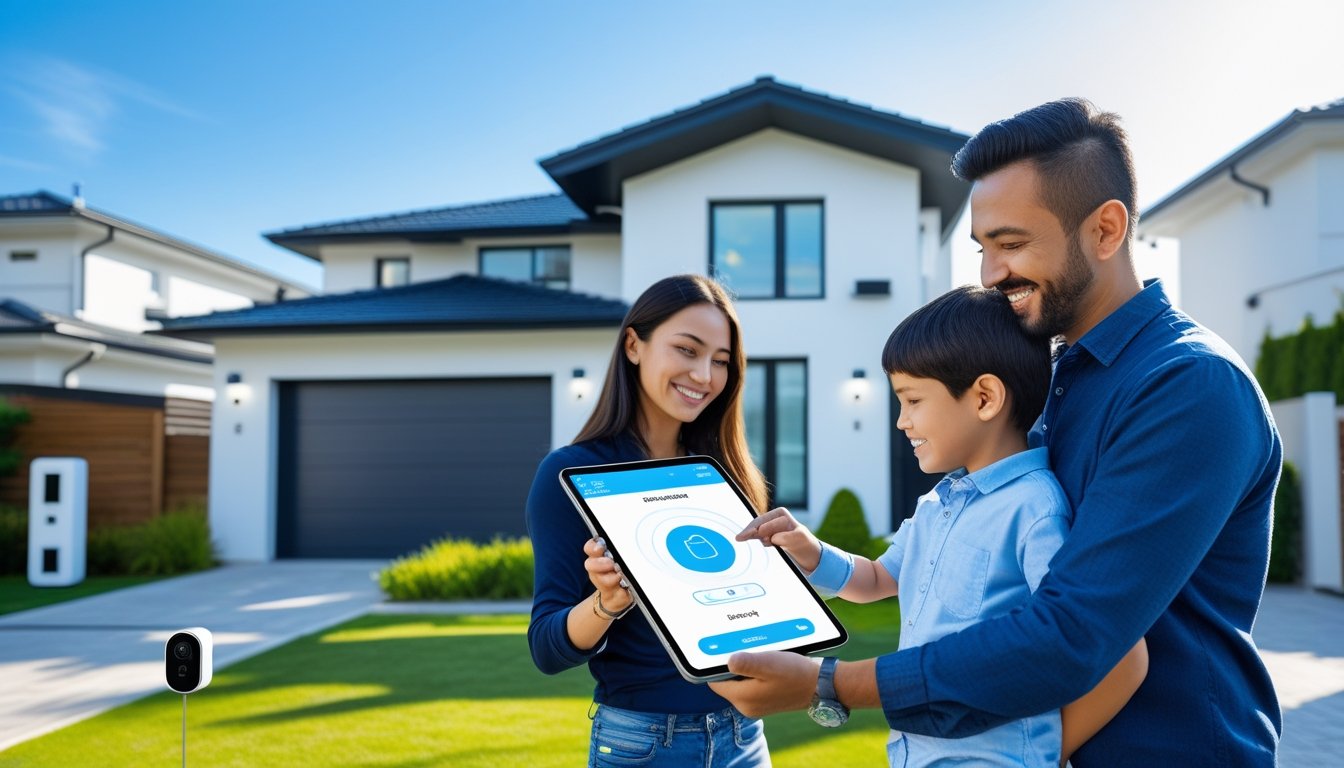Late updated: 14 Jun 2025 13:06
Written by: Elena Prescott
Innovative Home Security Solutions For 2025: Cutting-Edge Technologies Transforming Safety
As we move through 2025, home security innovations truly reshape how we protect our living spaces. From intelligent cameras with advanced analytics to seamless integration with smart home devices, these systems offer unprecedented convenience and control. Our residences can now be fortified with technologies that not only secure but also enrich our daily lives.

Imagine living in a home where every device communicates to provide a comprehensive safety blanket. This year, the focus is on streamlined user experience through integrated smart home solutions. Our homes can adapt to our routines, using AI to make real-time decisions, distinguishing between genuine threats and harmless activity.
Emerging technologies make home security both effective and user-friendly. With cutting-edge advancements, homeowners now have access to systems that are efficient and easy to install. We explore these innovations, introduce you to the latest solutions, and answer the most common questions about home security this year.
Key Takeaways
- Innovative technologies enhance home security in 2025.
- Integrated systems offer seamless smart home integration.
- User-friendly solutions provide security and convenience.
Cutting-Edge Home Security Technologies for 2025
In 2025, home security has reached new heights with advanced technologies. These innovations enhance our protection strategies, from AI-driven systems to sophisticated real-time monitoring and intelligent motion sensors.
Artificial Intelligence in Security Systems
Artificial intelligence (AI) has revolutionised home security by providing intelligent analysis of potential threats. AI-powered surveillance is adept at distinguishing between normal and suspicious activity, reducing false alarms. With facial recognition, our systems can accurately identify visitors, ensuring only recognised individuals can access secure areas.
AI also aids in processing video surveillance data, pinpointing unusual movements and alerting us promptly. These systems learn over time, adapting to our home's unique environment. They seamlessly integrate with existing security systems, enhancing our overall home protection strategy. Furthermore, AI-driven systems are vital in all aspects of our security network.
Smart Cameras and Real-Time Video Monitoring
Smart cameras play a pivotal role in our home's security framework. These devices provide real-time video monitoring with high-definition resolution, offering clarity in recordings. Video doorbells are particularly effective, allowing us to view and communicate with visitors remotely, thereby managing interactions even when we're away.
Video storage has also become more reliable through cloud systems, providing access to footage anytime, anywhere. Real-time alerts are crucial, notifying us of any potential threats or package theft immediately. With their integration into smart home systems, these cameras ensure effective surveillance and immediate response to security breaches.
Advanced Motion Detection and Sensors
Motion detectors and sensors have seen significant advancements. New-generation motion sensors detect subtle movements while minimising false alarms caused by pets or environmental factors. These are part of comprehensive security systems that cover entry points like windows and doors.
The inclusion of door sensors and window sensors further strengthens entry monitoring. Flood sensors and carbon monoxide detectors add an extra layer of safety, addressing potential non-burglary risks. Panic buttons and remote controls allow homeowners to call for help swiftly. These innovations in sensor technology significantly enhance the flexibility and reliability of our home security systems.
Integrated Smart Home Security Solutions

As we look ahead to 2025, integrated smart home security solutions have become a cornerstone of modern home protection. Key components include smart locks for secure and convenient access, seamless integration with home automation systems, and professional monitoring services tailored to various needs and budgets.
Smart Locks and Keyless Entry
In our increasingly digital world, smart locks are transforming how we safeguard our homes. These systems offer keyless entry, eliminating the need for traditional keys and enhancing security. Users can lock and unlock doors through mobile apps, providing convenient access controls from anywhere.
Voice control via platforms like Amazon Alexa and Google Assistant add an extra layer of convenience. Many smart lock systems feature internet and battery backup to ensure functionality during outages, providing peace of mind. Brands such as Wyze and ADT offer robust options in this space, delivering reliability through sophisticated technology.
Seamless Home Automation Integration
Smart home integration is crucial for efficient security management. A seamless connection between smart locks, cameras, and home automation devices creates a unified system. This includes compatibility with systems like Ring Alarm and Abode to ensure consistent performance.
With the best home security system, we can synchronise our home automation gadgets effortlessly. Voice control becomes more potent when combined with existing setups, enhancing the user experience. Ultimately, seamless integration optimises security while maintaining user convenience.
Monitoring Plans and Professional Services
Monitoring plays a vital role in comprehensive home security. Many systems offer 24/7 professional monitoring, providing an extra layer of protection. Companies like Vivint and SimpliSafe offer both DIY installation and professional install services, catering to different preferences.
Monitoring plans often include an array of services such as two-way communication and internet backup. These plans can vary in cost, so it’s crucial to consider monitoring fees and customer service when choosing a provider. Cove and Ring Alarm are examples of solutions offering excellent customer support and coverage, ensuring that our homes remain protected efficiently and effectively.
Frequently Asked Questions

As we adjust to advanced home security in 2025, it is essential to understand which systems are leading the market, explore the influence of technological advancements, and recognise strategies to enhance home safety effectively.
What are the top-rated home security systems of 2025?
Among the most highly regarded systems are those incorporating AI-powered cameras and biometric locks. These technologies provide enhanced real-time monitoring and user-friendly interfaces, offering improved protection and convenience for homeowners.
Which DIY home security systems are most recommended for residents in the UK?
UK residents have a variety of DIY security systems to choose from, with many favouring those that offer easy installation and comprehensive smartphone apps. Brands prioritising user flexibility and robust customer support are often recommended.
How have recent technological advancements shaped the home security industry?
Technological breakthroughs, such as AI and IoT integration, have revolutionised the industry. These advancements have led to systems that not only detect threats more accurately but also allow for seamless connectivity with other smart home devices, enhancing overall security efficiency.
What should consumers look for in a no-subscription home security system?
When choosing a no-subscription system, consumers should consider features such as local storage options, real-time alerts, and ease of use. High-quality hardware and reliable customer service support should also be prioritised to avoid unexpected costs.
Can you identify the most reliable professional home security providers of this year?
Several providers stand out for their reliability, including those offering 24/7 professional monitoring, customisable security solutions, and excellent customer service. Transparency in pricing and contract terms further enhances their credibility.
What strategies can homeowners adopt to enhance their property's security?
To maximise security, homeowners can install motion-sensor lighting, utilise smart locks for entry points, and invest in a comprehensive alarm system. Regularly updating security codes and ensuring software updates are also vital for preventing breaches.
